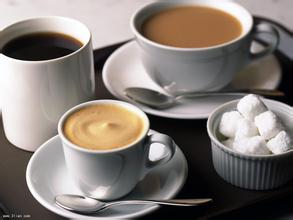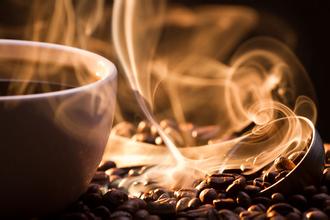Description of the Flavor of Coffee growing Environment in Kenya introduction to the taste of varieties in the producing area
People in the coffee industry all think that Kenyan coffee is one of its favorite products because Kenyan coffee contains every feeling we want from a good cup of coffee. It has wonderful and satisfying aromas, well-balanced acidity, well-proportioned particles and excellent fruit flavors. The taste is so unique that there is almost no similar coffee. Kenyan coffee is characterized by a distinctive fruity aroma. Try to find this flavor in the coffee and pay attention to how it feels in the mouth. One of the common fruit aromas is citrus. Kenyan coffee has multi-layered tastes and juice acidity, perfect grapefruit and wine flavors, and moderate mellowness. The Kenyan government takes the coffee industry extremely seriously, where it is illegal to cut down or destroy coffee trees. Kenyan coffee buyers are world-class high-quality coffee buyers, and no other country can grow, produce and sell coffee on a continuous basis like Kenya. All coffee beans are first acquired by the Kenya Coffee Commission (CoffeeBoardofKenya, CBK), where they are identified, graded, and then sold at weekly auctions, where they are no longer graded. The Kenya Coffee Commission only acts as an agent, collecting coffee samples and distributing them to buyers so that they can determine the price and quality, fragrant, full-bodied, fruity and full-bodied. Kenyan coffee has a wonderful fruit flavor, tastes like BlackBerry and grapefruit, and is a favorite of many coffee gluttons. This coffee has an excellent medium purity, crisp and refreshing taste. It has a fresh flavor and is most suitable for drinking iced coffee in summer. When tasting this coffee, if it is paired with sour fruits such as grapefruit, it will certainly give me the best coffee experience. "not much like coffee, but a bit like fruit tea" is the common feeling of many people about this kind of shallow roasted Kenyan coffee. There are two types of coffee farms in Kenya. One is a large plantation that covers an area of more than five acres, but the average elevation is low. In the case of Kenyan coffee, the coffee beans of the large farms are of medium quality. The best Kenyan beans come from small farms, most of which are located in the foothills or volcanic slopes above 5,000 to 6,000 feet. Each small farmer has a capacity of only 20 to 70 bags per season and cannot afford to invest in expensive washing plants, but small farmers are very United. Hundreds or thousands of households are gathered to set up a cooperative farm, which is funded by the government to build a washing treatment plant, and the coffee fruits picked by small farmers are sent to the cooperative farm for unified processing. First remove the half-ripe or rotten fruit, then peel, ferment, decompose the flesh, remove the coffee beans, then dry and polish, the whole process is supervised by the official Coffee Administration, which ensures the quality of Kenyan coffee. The washing and processing technology and high quality control of Kenyan beans have always been the example of bean-producing countries who only know how to brew, but do not know how to taste coffee, so the original delicacy may become tasteless. Some people taste coffee with the taste of the tongue, while others enjoy the aromatic mellow in the mouth. in addition, it depends on the condition of the body and the atmosphere around the coffee. In a word, tasting coffee is a very delicate thing.
When you drink coffee in a coffee shop, you sometimes drink almost half-cold coffee. No matter how good the coffee beans are and how good the brewing skills are, you will lose your appetite for coffee. Drinking while it is hot is a necessary condition for tasting delicious coffee, even on a hot summer day. When the coffee is cold, the flavor will decrease, so when brewing the coffee, in order not to reduce the taste of the coffee, soak the coffee cup in boiling water in advance. The appropriate temperature for coffee is 83 degrees Celsius at the moment of brewing, 80 degrees Celsius when pouring into the cup, and 61-62 degrees into the mouth.

Important Notice :
前街咖啡 FrontStreet Coffee has moved to new addredd:
FrontStreet Coffee Address: 315,Donghua East Road,GuangZhou
Tel:020 38364473
- Prev

Description of Brazilian Coffee Flavor with smooth taste introduction to Culture of planting Environment of varieties in producing areas
In terms of natural conditions, Brazil is in the tropics, with a tropical rain forest climate in the north, hot and humid all the year round, suitable for tropical crops, coffee trees are sunny crops, and sufficient sunlight is the condition for their growth. Historically, Brazil has been a Portuguese colony for a long time. In order to meet the needs of Western Europe, Brazil has been planting single crops for a long time and developing tropical plantation economy.
- Next

Introduction to the Manor Price of Flavor planting Environment in the producing area of Rwanda Coffee with strong Flavor
The taste of Rwandan coffee is described as a grassy aroma with tropical climates. in addition to the sweetness of fruit, this coffee also gives people a feeling of freshness, clarity, and freshness. Bourbon coffee grown in Rwanda is amazing for its sweet fruit, full-bodied, unrestrained and lingering aftertaste. This kind of coffee is delicious
Related
- Detailed explanation of Jadeite planting Land in Panamanian Jadeite Manor introduction to the grading system of Jadeite competitive bidding, Red bid, Green bid and Rose Summer
- Story of Coffee planting in Brenka region of Costa Rica Stonehenge Manor anaerobic heavy honey treatment of flavor mouth
- What's on the barrel of Blue Mountain Coffee beans?
- Can American coffee also pull flowers? How to use hot American style to pull out a good-looking pattern?
- Can you make a cold extract with coffee beans? What is the right proportion for cold-extracted coffee formula?
- Indonesian PWN Gold Mandrine Coffee Origin Features Flavor How to Chong? Mandolin coffee is American.
- A brief introduction to the flavor characteristics of Brazilian yellow bourbon coffee beans
- What is the effect of different water quality on the flavor of cold-extracted coffee? What kind of water is best for brewing coffee?
- Why do you think of Rose Summer whenever you mention Panamanian coffee?
- Introduction to the characteristics of authentic blue mountain coffee bean producing areas? What is the CIB Coffee Authority in Jamaica?

